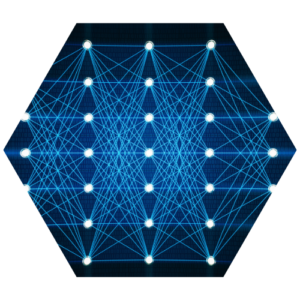Revolutionizing Industry: The Five-Year Impact of Neural Networks on Key Sectors
Neural networks, the backbone of artificial intelligence, have progressed from theoretical frameworks to indispensable tools reshaping industries. These computational models, inspired by the human brain, excel at pattern recognition, predictive analytics, and automation, offering unparalleled solutions to complex challenges. Over the next five years, advancements in hardware, algorithms, and data accessibility will accelerate the adoption of neural networks, driving transformative change across Consumer Packaged Goods (CPG), Aerospace, Energy, and the Chemical Industry. This forecast explores the potential of neural networks to revolutionize these critical sectors, addressing key applications, opportunities, and challenges ahead.
Impacts of Neural Networks by Industry
Consumer Packaged Goods (CPG) – Including Food and Beverage
Consumer Packaged Goods (CPG) Industry –
Personalized Consumer Experiences:
Neural networks will enable hyper-personalized marketing strategies by analyzing consumer behavior and preferences in real time. Brands can deliver tailored product recommendations, dynamic pricing, and individualized promotions to drive engagement and loyalty.
Optimized Supply Chain Management:
Predictive analytics powered by neural networks will enhance demand forecasting, inventory optimization, and logistics planning. This leads to reduced waste, improved efficiency, and lower costs across the supply chain.
Quality Control and Product Innovation:
Machine vision, a neural network application, will transform quality assurance processes by identifying defects and ensuring consistency in production. Simultaneously, generative AI models can accelerate product innovation, creating new flavors, packaging designs, or even sustainable alternatives.
Impacts of Neural Networks on Aerospace
Aerospace Industry –
Advanced Flight Systems and Autonomous Operations:
Neural networks will enhance autopilot systems and enable semi-autonomous or fully autonomous flight operations. They will improve navigation accuracy, flight safety, and fuel efficiency.
Predictive Maintenance:
By analyzing sensor data from aircraft systems, neural networks can predict equipment failures before they occur, minimizing downtime and enhancing operational reliability.
Defense and Security Applications:
Neural networks will play a critical role in defense by improving threat detection, mission planning, and decision-making capabilities. They will also bolster cybersecurity by identifying and neutralizing emerging threats.
Space Exploration:
Neural networks will support advancements in spacecraft design, mission planning, and autonomous navigation for deep-space missions, unlocking new frontiers in exploration.
Impacts of Neural Networks on Chemical
Chemical Industry –
Accelerated R&D and Material Discovery:
Neural networks will expedite the discovery of new materials and chemicals by analyzing vast datasets of molecular and material properties. This includes identifying optimal compounds for specific applications, such as lightweight materials for automotive or aerospace use, or eco-friendly alternatives to traditional chemicals.
Process Optimization and Yield Improvement:
Neural networks will enhance manufacturing efficiency by optimizing chemical reactions and processes in real time. This includes precise control over temperature, pressure, and reactant ratios to maximize yields while minimizing waste and energy consumption.
Predictive Maintenance in Chemical Plants:
Neural networks will monitor equipment and process data to predict maintenance needs, reducing unplanned downtime and enhancing operational safety. This will be particularly valuable in plants with complex and hazardous processes.
Sustainability and Emissions Reduction:
Neural networks will assist in designing more sustainable production processes by modeling carbon emissions and energy consumption patterns. This includes developing processes for carbon capture, utilization, and storage (CCUS), as well as optimizing the use of renewable feedstocks.
Quality Control and Product Consistency:
Machine vision and neural networks will improve quality assurance in the chemical industry by detecting minute variations in product composition or packaging. This ensures high standards of consistency and safety in chemical products.
Supply Chain Optimization:
From raw material procurement to distribution, neural networks will optimize supply chain logistics in the chemical industry, enhancing delivery timelines and cost efficiency. This is particularly relevant for industries reliant on volatile or time-sensitive chemicals.
Impacts of Neural Networks on Energy
Energy Industry –
Grid Optimization and Renewable Energy Integration:
Neural networks will facilitate smart grid management, balancing supply and demand with real-time data analysis. They will also support the seamless integration of renewable energy sources into existing grids, improving efficiency and reducing emissions.
Exploration and Resource Management:
In oil, gas, and renewable sectors, neural networks will revolutionize resource exploration by analyzing geological data to identify optimal drilling locations or renewable energy sites.
Energy Efficiency and Predictive Maintenance:
Neural networks will optimize energy consumption patterns in industrial and residential settings. Additionally, predictive maintenance in power plants and distribution systems will enhance reliability and reduce operational costs.
Decarbonization Strategies:
Neural networks will help model and implement decarbonization strategies by simulating the impact of policies and technologies, enabling more effective pathways to achieve net-zero goals.
Summary
Automating Innovation in R&D
Enhancing Predictive Intelligence
Creating More Adaptive Systems
Solving Complex Sustainability Challenges
Neural networks are emerging as a catalyst for innovation, redefining how industries operate and compete. In CPG, they will personalize consumer experiences and optimize supply chains. In aerospace, they will enhance autonomous systems and pave the way for advancements in space exploration. In energy, neural networks will optimize grid management and accelerate decarbonization. In the chemical industry, they will transform R&D, process optimization, and sustainability efforts. While ethical considerations, data privacy, and algorithmic biases present challenges, the opportunities far outweigh the risks. By strategically leveraging neural networks, businesses can drive efficiency, innovation, and growth, ensuring a competitive edge in an increasingly data-driven world.
The Future of Innovation with Neural Networks
As industries continue to evolve, neural networks will be at the forefront of transformative change. The companies that successfully integrate AI-driven technologies into their innovation strategies will not only enhance efficiency but also unlock entirely new business opportunities. Whether through automating complex processes, enabling personalized consumer experiences, or pioneering advancements in scientific research, neural networks are shaping the future of innovation—one intelligent decision at a time.
Contact us to learn how our Innovation Management Solutions including Technology Landscape Research Services and Innovation Strategy Consulting can support the implementation of new technologies.







